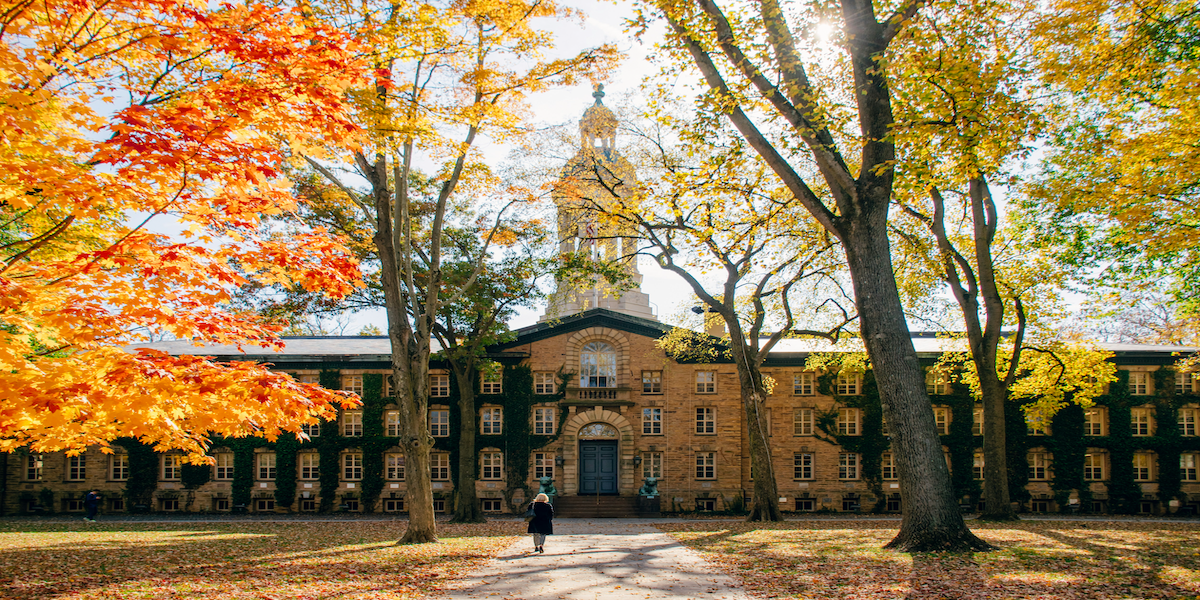Image commercially licensed from Unsplash
The Ivy League is synonymous with academic excellence, prestige, and a highly competitive admissions process. However, it’s not just Ivy League schools that boast rigorous admission standards. Many other top-tier institutions also admit only a small percentage of applicants. College Transitions, a leading college consulting firm, offers valuable insights into acceptance rates for the Ivy League Class of 2027 and other elite schools, shedding light on the challenges applicants face and the factors contributing to these rates.
Ivy League and Top School Acceptance Rates: Class of 2027
Each year, elite institutions release their admissions statistics, providing valuable insights into the highly competitive admissions landscape. Here’s a breakdown of the acceptance rates for the Ivy League Class of 2027 and other top schools, as reported by College Transitions:
Ivy League Schools:
Brown University: 5.1%
Columbia University: 3.9%
Dartmouth College: 6.2%
Harvard University: 3.4%
Yale University: 4.4%
Other Top Schools:
Massachusetts Institute of Technology (MIT): 4.7%
Duke University: 6%
New York University (NYU): 8%
Georgetown University: 13%
University of Southern California (USC): 9.9%
Contributing Factors to the Low Acceptance Rates
Several factors contribute to the low acceptance rates at Ivy League institutions and other top schools
High-Quality Applicants: These elite schools attract some of the brightest and most talented students globally, increasing the competition for the limited number of spots available.
Increasing Applications: Elite schools have seen a surge in applications over the years, driven by factors such as the ease of submitting applications through platforms like the Common Application and the Coalition Application. Additionally, the pandemic has led to a temporary suspension of standardized testing requirements, making it easier for more students to apply.
Reputation and Prestige: The prestigious reputation of these institutions continues to draw applicants seeking the best possible education and networking opportunities.
Financial Aid: Top schools, including the Ivy League, are known for offering generous financial aid packages, making them an attractive option for students from diverse socioeconomic backgrounds.
Navigating the Admissions Process for Elite Schools
Given the low acceptance rates, it’s crucial for applicants to understand what it takes to stand out in the admissions process for these competitive schools. College Transitions suggests focusing on the following aspects:
Holistic Admissions: Elite schools evaluate applicants based on various factors, including academics, extracurricular activities, leadership potential, and personal qualities. Students should strive for a well-rounded profile to increase their chances of admission.
Crafting a Compelling Application: A strong application should showcase the applicant’s unique talents, passions, and experiences. This includes a well-written essay, compelling letters of recommendation, and a resume that highlights achievements and extracurricular involvement.
Demonstrated Interest: While not all elite schools consider demonstrated interest in their admissions process, showing enthusiasm for a specific school can be beneficial. This can be done through campus visits, attending college fairs, and engaging with admissions representatives.
Early Decision/Early Action: Applying through Early Decision or Early Action can increase an applicant’s chances of admission, as these programs often have higher acceptance rates compared to Regular Decision.
Broadening Your College Search
While the Ivy League and other top schools represent a gold standard for higher education, it’s essential to remember that many other excellent institutions offer high-quality education and opportunities for success. College Transitions emphasizes the importance of considering a wide range of colleges and universities that match a student’s interests, goals, and needs. By broadening your college search and focusing on finding the right fit, you can increase your chances of not only being admitted but also thriving academically and personally in your chosen institution.

